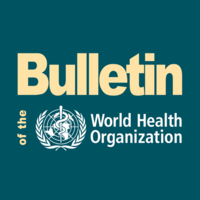Implementing rapid testing for tuberculosis in Mozambique

Citation: Cowan, J., Michel, C., Manhiça, I., Monivo, C., Saize, D., Creswell, J., Gloyd, S., & Micek, M. (2015). Implementing rapid testing for tuberculosis in Mozambique. Bulletin of the World Health Organization, 93, 125–130. https://doi.org/10.2471/BLT.14.138560
Abstract: In Mozambique, pulmonary tuberculosis is primarily diagnosed with sputum smear microscopy. However this method has low sensitivity, especially in people infected with human immunodeficiency virus (HIV). Patients are seldom tested for drug-resistant tuberculosis. The national tuberculosis programme and Health Alliance International introduced rapid testing of smear-negative sputum samples. Samples were tested using a polymerase-chain-reaction-based assay that detects Mycobacterium tuberculosis deoxyribonucleic acid and a mutation indicating rifampicin resistance; Xpert® MTB/RIF (Xpert®). Four machines were deployed in four public hospitals along with a sputum transportation system to transfer samples from selected health centres. Laboratory technicians were trained to operate the machines and clinicians taught to interpret the results. In 2012, Mozambique had an estimated 140 000 new tuberculosis cases, only 34% of which were diagnosed and treated. Of tuberculosis patients, 58% are HIV-infected. From 2012-2013, 1558 people were newly diagnosed with tuberculosis using sputum smears at intervention sites. Xpert® detected M. tuberculosis in an additional 1081 sputum smear-negative individuals, an increase of 69%. Rifampicin resistance was detected in 58/1081 (5%) of the samples. However, treatment was started in only 82% of patients diagnosed by microscopy and 67% of patients diagnosed with the rapid test. Twelve of 16 Xpert® modules failed calibration within 15 months of implementation. Using rapid tests to diagnose tuberculosis is promising but logistically challenging. More affordable and durable platforms are needed. All patients diagnosed with tuberculosis need to start and complete treatment, including those who have drug resistant strains.
Author(s): Bulletin of the World Health Organisation
Year: 2015
Language: English
Region(s): MOZAMBIQUE
Resource Type: Journal Articles
Source: World Health Organization
